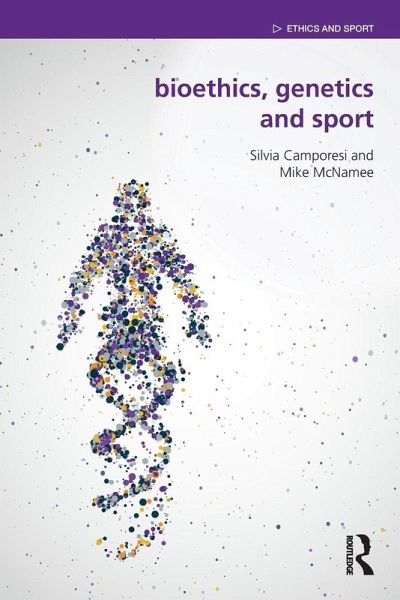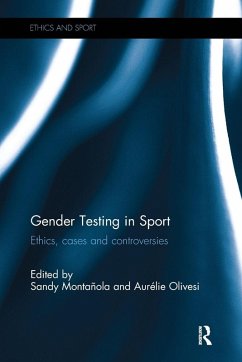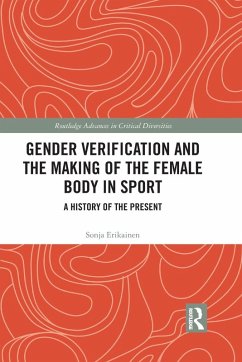
Bioethics, Genetics and Sport
Versandkostenfrei!
Versandfertig in 6-10 Tagen
43,99 €
inkl. MwSt.
Weitere Ausgaben:

PAYBACK Punkte
22 °P sammeln!
Advances in genetics and related biotechnologies are having a profound effect on sport, raising important ethical questions about the limits and possibilities of the human body. Drawing on real case studies and grounded in rigorous scientific evidence, this book offers an ethical critique of current practices and explores the intersection of genetics, ethics and sport.Written by two of the world's leading authorities on the ethics of biotechnology in sport, the book addresses the philosophical implications of the latest scientific developments and technological data. Distinguishing fact from p...
Advances in genetics and related biotechnologies are having a profound effect on sport, raising important ethical questions about the limits and possibilities of the human body. Drawing on real case studies and grounded in rigorous scientific evidence, this book offers an ethical critique of current practices and explores the intersection of genetics, ethics and sport.
Written by two of the world's leading authorities on the ethics of biotechnology in sport, the book addresses the philosophical implications of the latest scientific developments and technological data. Distinguishing fact from popular myth and science fiction, it covers key topics such as the genetic basis of sport performance and the role of genetic testing in talent identification and development. Its ten chapters discuss current debates surrounding issues such as the shifting relationship between genetics, sports medicine and sports science, gene enhancement, gene transfer technology, doping and disability sport.
The first book to be published on this important subject in more than a decade, this is fascinating reading for anyone with an interest in the ethics of sport, bioethics or sport performance.
Written by two of the world's leading authorities on the ethics of biotechnology in sport, the book addresses the philosophical implications of the latest scientific developments and technological data. Distinguishing fact from popular myth and science fiction, it covers key topics such as the genetic basis of sport performance and the role of genetic testing in talent identification and development. Its ten chapters discuss current debates surrounding issues such as the shifting relationship between genetics, sports medicine and sports science, gene enhancement, gene transfer technology, doping and disability sport.
The first book to be published on this important subject in more than a decade, this is fascinating reading for anyone with an interest in the ethics of sport, bioethics or sport performance.














